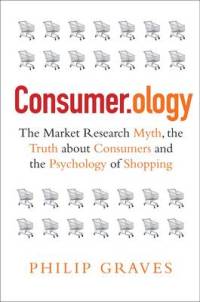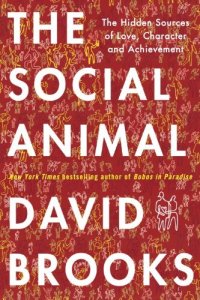Book Review: Consumer.ology
 I had the pleasure of reading this book while travelling to the EMAC annual conference last month. It wasn’t hard to keep the pages turning. This is a well-researched, lucidly written book that will force the market research industry to address some fairly troubling questions about what it does and how it does it. By implication, the academic research ‘business’ is in the firing line too, given that empirical data is often collected using the same techniques.
I had the pleasure of reading this book while travelling to the EMAC annual conference last month. It wasn’t hard to keep the pages turning. This is a well-researched, lucidly written book that will force the market research industry to address some fairly troubling questions about what it does and how it does it. By implication, the academic research ‘business’ is in the firing line too, given that empirical data is often collected using the same techniques.
The core of Graves’ argument is that people are unlikely to be able to accurately explain what they have done in the past or are likely to do in the future. Doubts about the value of market research have always been there, particularly when one looks at the long line of research mistakes such as Coca Cola, Absolut, the Millennium Dome, Chrysler Minivan, Red Bull and so on and on. One can only speculate how many potentially successful ideas have been shelved based on some erroneous research findings. The key to the problem as Graves points out is that most consumption is an unconscious activity but research participation is a conscious exercise. He cites a wide range of studies from the fields of psychology and neuroscience which demonstrate how the environment, context, priming and so on influence people. Unfortunately, these types of influences are pervasive in marketing research. For example, the ever popular focus group is a particular offender with its boardroom-style environment, the video recording of discussions and the inevitable social influences of the moderator and the other group members. How can the findings of such an activity measure the reality, whatever that is? In short, Graves argues that the research process is inherently flawed and provides compelling evidence to back this up. By studying the subject we influence it and even if we didn’t, responses are likely to be inaccurate anyway. As a research consultant, he has also had the opportunity to observe first-hand the kinds of misleading results that it can generate.
So if research doesn’t work, what are the options? Graves proposes that if research is to be carried out, it needs to meet certain criteria that he outlines which are designed to limit the influence of the process. However, it is better still not to ask customers at all. Instead just monitor what they do, where they go on the website, how they behave in a shopping environment (but be careful what conclusions you draw!). Create situations where live tests can be carried out to observe what people actually do. As he suggests, we should believe nothing of what we hear from consumers, half of what we see them do and almost everything the sales data says they have done. Uncomfortable for some alright!






 John Fahy
John Fahy